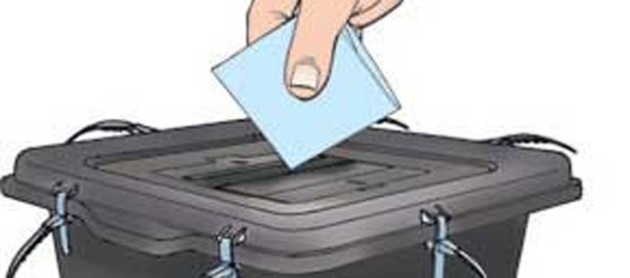State funding a prerequisite for transparent elections and accountable parties (Commentary)
 Manoj Karki / Kathmandu: If things go as planned, Nepal would be going for local elections in 69 days from now. With the Election Commission already announcing the election calendar for the same, political parties, their leaders and cadres and the voters alike have already geared up for the big day.
Manoj Karki / Kathmandu: If things go as planned, Nepal would be going for local elections in 69 days from now. With the Election Commission already announcing the election calendar for the same, political parties, their leaders and cadres and the voters alike have already geared up for the big day.
With almost 20 years since the last election was held in 1997, the list of people willing to stand for the election is obviously quite long. However, there are many criteria that the probable candidates will have to fulfil before being chosen as the official candidate to represent their respective party in the election.
And one among many criteria would be the financial status of a particular candidate or his/her ability to generate funds for election campaigning. As neither the party nor the state/election commission provides funds for political parties or candidates in Nepal, it is solely the responsibility of the particular candidate to meet the expenses of election campaigning.
And as with every other thing in Nepal, the cost of political campaigning too has skyrocketed. And money apart from muscle does play a significant role in elections, particularly in South Asia including Nepal.
Hence, after getting through the hurdle of first being selected the official candidate of a particular party, the second headache for the particular candidate would be to generate funds for election campaigning, without which it would almost be impossible to win.
As part of the election code of conduct that is already in force for the local elections scheduled for coming May 14, a ceiling in election-related expenses is one. Accordingly, 700,000 rupees has been set as the maximum ceiling that a candidate could spend in course of the local elections.
Of course, the amount of seven lakhs may not be a problem at all for some candidates, given the fact that now the rich and famous, wealthy businessmen have all joined political parties in the country. Some candidates are known to have used helicopters for election campaigning.
However, the amount is certainly huge for many candidates, especially the financially poor ones, who are usually the ones seriously dedicated to the party and to the nation at large. And these people, if given the candidacy, will have no choice but to look for financers. And getting outside finance for election campaigning would certainly come with some strings attached to it, and if elected, the leader would certainly have to pay it back in various forms during his/her term as the elected office-bearer.
And higher the level of election, higher is the cost of election campaigning, with some leaders saying in private conversation to have spent between Rs. 2o to 30 million in the last Constituent Assembly elections. Of course, some businessmen paid higher than the amount to be elected as the Proportional Representation (PR) members of parliament.
Hence, one way to get rid of all these anomalies is state funding to political parties. It would not only release the burden on the candidates but also lead to cleaner and healthier politics. Money can no longer play a part in the outcome of elections, if candidates do not have to spend from their pocket and if everybody spends the same amount.
Scrutiny of election-related funds would be easier and the state funding could come with various conditions that would help elections in different ways. State funding could also be a medium to promote gender equality in politics and publicly elected posts, with the parties receiving state funding being asked to meet certain gender-related requirements to be eligible to get the funds.
This is very important as traditionally women have less access to economic sources and have been compelled to rely on the male members of the family for the same. Many put this also as a reason for women candidates being unable to win many seats in the first-past-the-post (FPTP) seats in the past elections. Hence, state funding would ensure that women have an equal opportunity to win seats through openly contested constituencies, instead of only relying on quotas and reservations.
Considering the importance of state funding in making political parties and elections transparent and accountable, the Election Commission had rightly proposed a mechanism to be included in the draft bill related to the political parties. However, it seems to have failed to win the confidence of the parties themselves and the government. Though the bill is yet to be endorsed by the parliament, it is less likely that it would come with a provision of state funding for parties.
The EC is learnt to have proposed a mechanism of funding based on the number of votes that a certain party gets in an election. This would be more beneficial for larger parties, and hence was vehemently opposed by the fringe parties. The fringe parties are also working hard to make sure that the Commission’s proposal for a threshold to be eligible for a seat through proportional representation (PR) system in the coming elections is thwarted.
If Nepal adopts state funding for political parties then it will follow Bhutan, the Maldives and Sri Lanka in South Asia to do so. International reports show that the number of countries adopting direct public funding for political parties is on the rise, with currently standing at around 68 per cent. Given the importance of it, the percentage is likely to move up in the days come. And Nepal too will have to adopt it to make elections more transparent and fairer sooner than later. RSS
